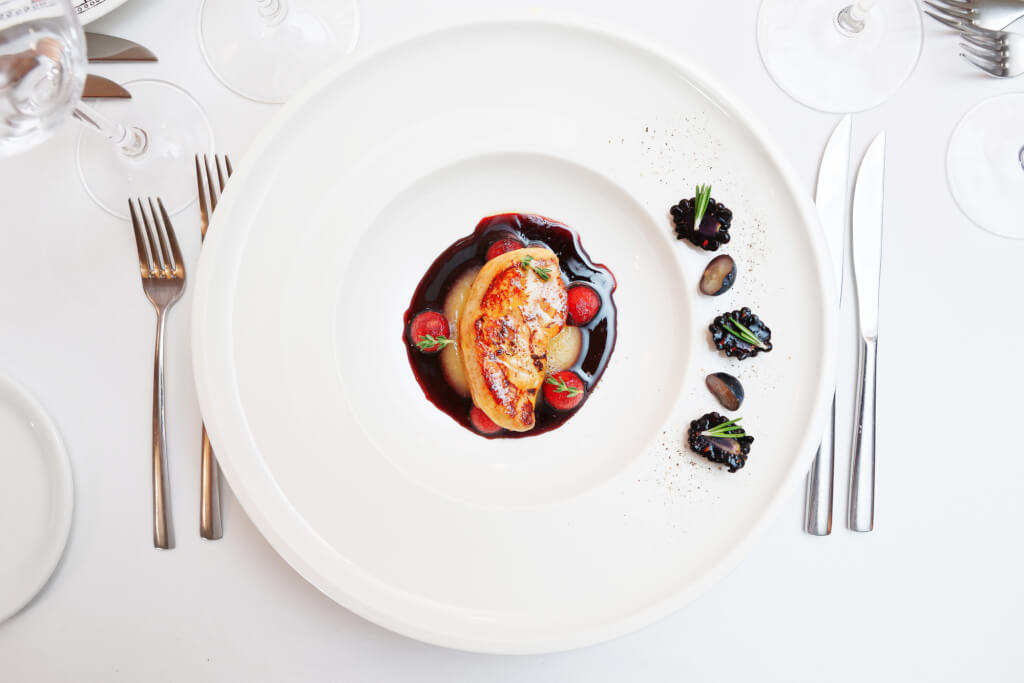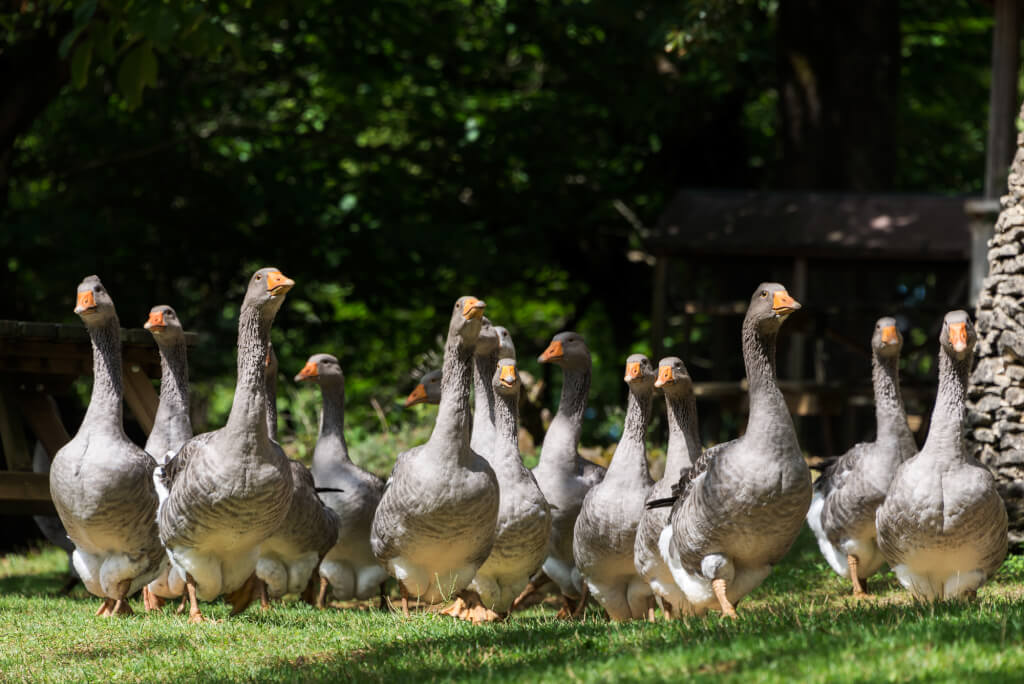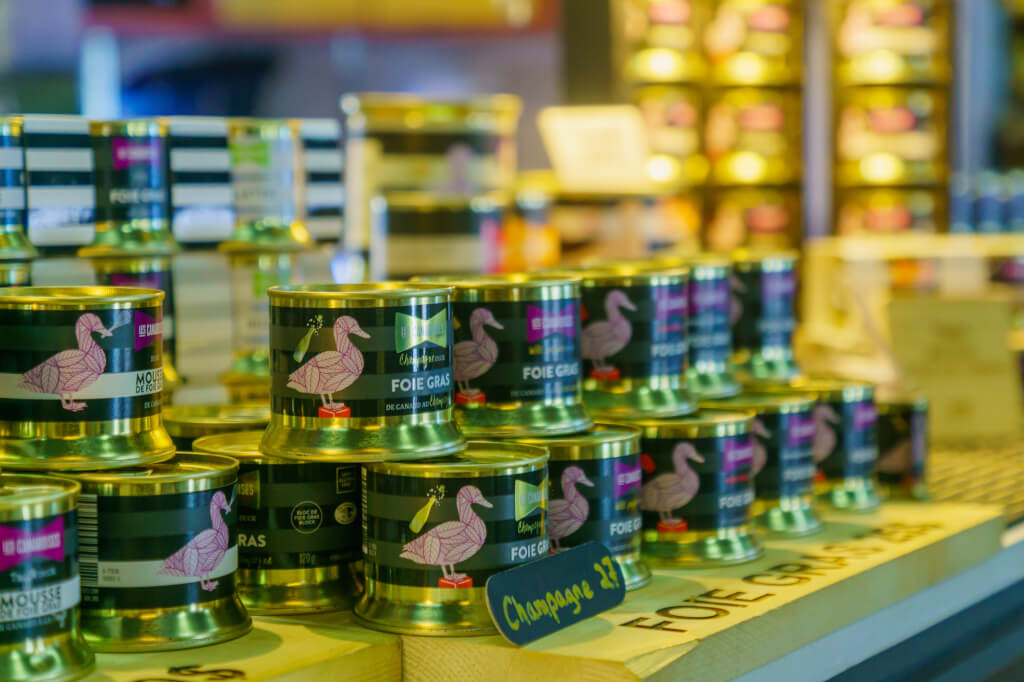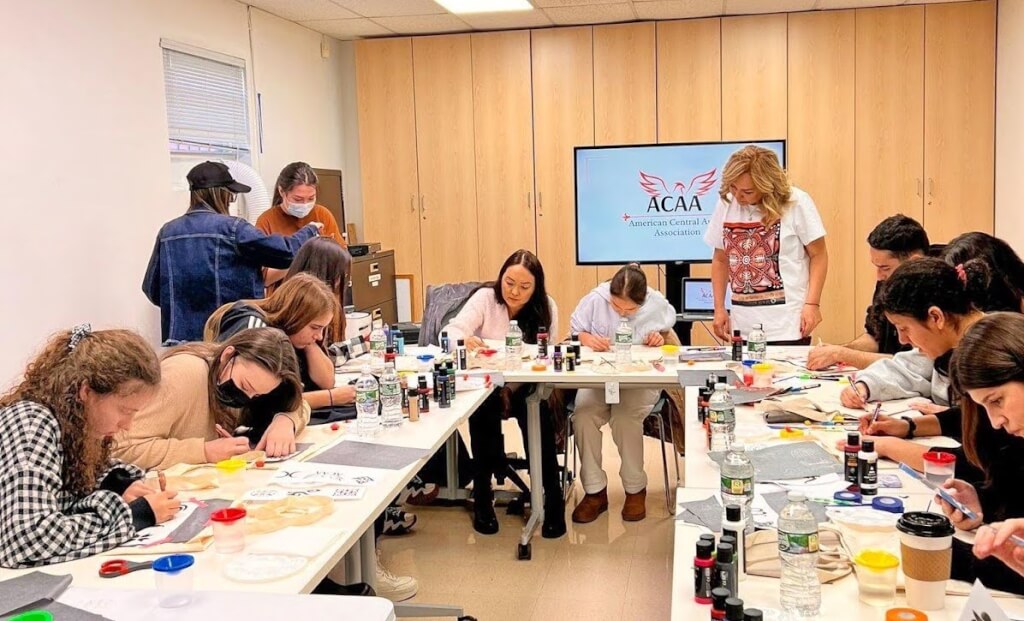Foie gras banned in New York: how will it affect the city
'01.11.2019'
Source: nytimes.com
Animal cruelty issues prompted New York authorities to ban foie gras, which will take effect in 2022. About how this will affect restaurateurs and farm owners producing a unique product, writes The New York Times.

The famous French restaurant Lutèce served foie gras with dark chocolate sauce and bitter orange marmalade. Le Cirque - offered in the classic form of terrine, served with rabbit and bacon, and also added to ravioli.
“But Lutèce closed in New York in 2004. Le Cirque closed its last point in Manhattan in 2017. And foie gras, the hallmark of good French cuisine, is about to follow their example, ”the source said.
This is because on October 30, the New York City Council overwhelmingly upheld the law banning the sale of foie gras in the city since 2022.
Thus, New York will join California, where the sale of foie gras is already prohibited. The main reason for making this decision is fears caused by cruelty to animals.
How is foie gras made
A stomach tube is used to produce fattened duck liver. With its help, birds are forcibly fed with a fatty corn mixture that nourishes their liver.
“The process requires tubes to be inserted into the duck's throat for an 20-day feeding regimen, increasing their liver volume by 10 times compared to its normal size,” the source notes.

According to activists, because of this procedure, ducks can become too big to walk or even breathe before they are killed.
Carolina Rivera, a member of the Manhattan council that sponsored the bill, said he would get rid of the “most inhumane process” in the commercial food industry.
“This is one of the most cruel practices. And this was done exclusively for the luxury product, ”she said.
By the way, other countries, including India, Israel and the UK, have already banned the sale or production of foie gras. Whole Foods, the American supermarket chain, stopped selling this product back in 1997, citing cruelty, and Postmates stopped supplying it in 2018.
On the subject: Why in California banned foie gras
However, in New York in recent decades, the demand for foie gras has not subsided. However, this tradition is changing thanks to the progressive city council, the publication emphasizes.
About the bill
The bill prohibits the sale of foie gras produced by "force-fed birds." For each violation, a fine of $ 2000 is charged.
However, the source notes, not all foie gras comes from ducks or geese that were force-fed. Therefore, determining whether foie gras has been illegally made can be a legal problem.
"In accordance with the law, it is assumed that all foie gras comes from ducks or geese that were force-fed, unless the" documentary "evidence indicates otherwise," the report said.
About a thousand restaurants in New York have foie gras on their menu. But farms to the north of New York, which produce foie gras, can feel greater influence.
Hudson Valley Foie Gras in the Hudson Valley and La Belle Farm in Sullivan County say they employ about 400 people, and New York accounts for about 30% of their business.
For example, Hudson Valley Foie Gras, which kills 800 ducks a day, sold foie gras for $ 15 million last year.
Foie gras liver, which weighs 90 grams, can be sold for 125 dollars.
According to Sergio Saravia, the founder of La Belle and the leader of Catskill Foie Gras, the bones and feathers of ducks that are killed for foie gras are used in other products, such as dog food and for making coats.
“California and New York were our largest markets, so it’s devastating,” Saravia said, adding that his farm lost $ 50 thousand every week as a result of a loss in the California market: “It's hard to stay afloat.”
To ensure that the new bill does not harm farmers in the northern part of the state, amendments were made to it, Rivera noted.
She says that the ban will come into force only three years after its adoption. This will allow farmers to adjust their business models.
“The maximum fine for violating the ban was increased to $ 2000 (instead of $ 1000), but the proposed criminal punishment of imprisonment for up to one year was canceled,” the source said.
Rivera also rejected the idea that the ban would put farms in the northern part of the state out of business.
“These farms produce dozens of other products, and sounding is aggressively brutal,” she said and added: “There is a ban on exotic animals in New York, but people still go to the circus.”
The reaction of the authorities and animal advocates
More than half of the city council (30 members) joined the sponsors of the foie gras law, which was part of the package of laws against animal cruelty. According to lawyers, they were one of the most significant in recent years in New York.
In total, 42 member of the council voted to ban the sale of foie gras in the restaurants of the city.
Other legislation adopted in the package will impede the operation of horse-drawn carriages on days with high humidity (it is measured using equestrian thermal index), and will also create a state body for the protection of animals, prohibit the capture and transfer of wild birds such as pigeons.
"The birds that are widespread in New York are sometimes caught and taken out of state for use as targets when shooting," the publication said.
Justin L. Brannan, a member of the Democratic Council representing Brooklyn and sponsoring animal welfare legislation, said the office would create a central place to deal with animal issues.
“When there was a problem with animals, you never knew who to call,” he said.
Keith Powers, a member of the Manhattan Democratic Council, said he does not support the elimination of the horse transport industry, but wants protection for the horses. The horse industry opposed this measure.
The publication notes that supporters of animal rights welcomed the adopted bills.
“These prohibitions are too popular,” stated Robert Cornegie, Jr., a member of the city council who represents Brooklyn. He was one of six to vote against the foie gras ban. “Customers will determine the market,” he said.
Councilman Kalman Yeager, who also represents Brooklyn, said the council has more pressing issues. He voted against the law on foie gras and on the capture of wild birds.
“If there is a group of guys who catch pigeons, send them to my area,” Yeager said. - Is this really what we are here for - to ban (sale - Ed.) liver? "
On Tuesday, October 29, in the office of Mayor Bill de Blasio, they announced that he decided not to sign or veto legislation. Following the vote, Avery Cohen, spokesman for the mayor, said he would sign animal rights bills.
Ellie Feldman Taylor, founder and president of Voters for Animal Rights, said the animal rights package would protect those used for food and entertainment as well as wildlife. She described these bills as "the most important animal rights legislation in the history of our city." According to her, this serves as evidence that New York is becoming more compassionate.
Business reaction

Foie gras farmers say forced feeding is not cruel and said allegations of torture are exaggerated.
They also say that there is a biased opinion about foie gras because it is a luxury product.
Marco Moreira, executive chef and owner of the famous French restaurant Tocqueville near Union Square, serving foie gras appetizer from the Hudson Valley, is worried that this will negatively affect business.
“We will suffer,” Moreira said. - It's like removing letters from the alphabet. They’ll just throw something out of our kitchen dictionary, which is an integral part of the restaurant. ” New York is the mecca of restaurants in the world. How is it possible that foie gras are not here? What's next? Prohibit veal? No more mushrooms? ”
Dan Williams, executive sufar at Marea, in the south of Central Park, called foie gras an “ingredient in craftsmanship,” and emphasized that it takes time to “learn how to harvest and prepare from it.”
“It's not fried shrimp,” he remarked. “You must have talent before adding this to the menu.”







